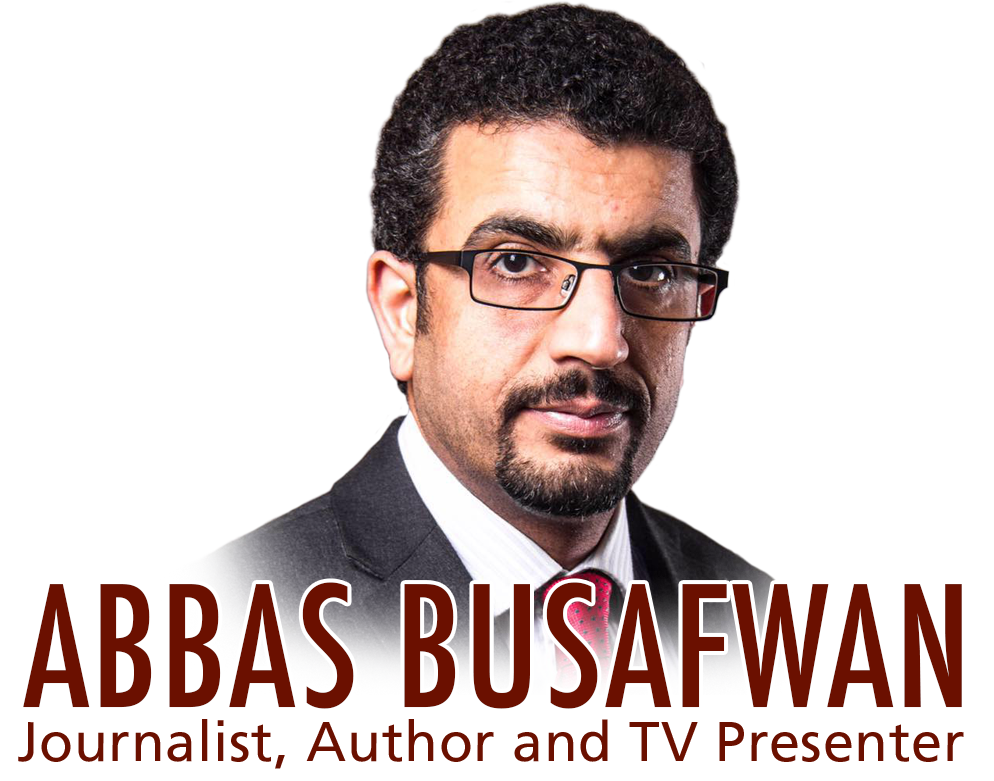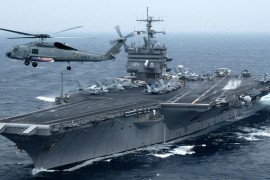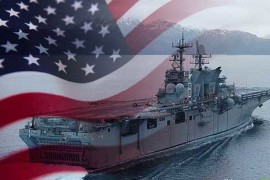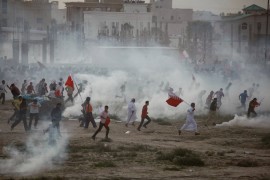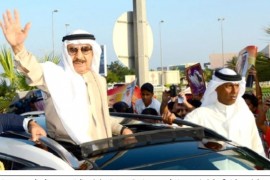It is no longer a question whether the Prime Minister of Bahrain will be removed from his post or not, but the question folds in when is that to happen, where the most difficult question is also related to the repercussions of this resounding and anticipated step.
It is no longer a question whether the Prime Minister of Bahrain will be removed from his post or not, but the question folds in when is that to happen, where the most difficult question is also related to the repercussions of this resounding and anticipated step. Since 2001, when Bahrainis voted on the Charter, Khalifa bin Salman Al Khalifa, the Prime Minister became the person with no powers to be mentioned. The charter was counted as a huge public support for the King Hamad bin Isa Al Khalifa, where it was smartly used to glide his uncle from his post as the ruler of the country, often in a soft, yet, rough manner. The king did not hesitate to shout publically in the face of his uncle in January 2008, threatening him and his ministers to be removed if they hampered the economic program of the Crown Prince.
As also Mackenzie Foundation did when it launched conferences under the cover of the Economic Development Board EDB chaired by the Crown Prince (moderate person, as described by the West), through their successive reports (from 2003 to 2008) carrying out a strong political and media campaign to say that the Prime Minister, a hardliner, spoiled the country’s economy and services, and if it shall continue under his governmental administration a crisis will hit Bahrain’s small oil-based economy, and shall weaken Manama in attracting investments, and increase the unemployment crisis, a new catastrophe may begin in Bahrain. And actually, Mackenzie were right, since the king removed the efficient actors in the Cabinet who were affiliated to the old Sheikh, the Prime Minister, turning him to a retired and out-of-service member, as I have been describing for years. Therefore, it was not the Prime Minister who is in power, as the political decision was referred to the palace and the economic decision was referred to the Crown Prince’s Economic Development Board EDB, which became under the iron grip of the Khawaled.
Hamad only hanged on to his uncle because Saudi sees the necessity of him remaining in office until destiny interferes in a way or another, yet, Riyadh supported in an decisive manner the hardliner plan of the New Ruler (Hamad), who assured that the pace of reform and the Charter (2001) is not but a tactic to capture power, in the face of the Prime Minister on one hand, and the forces of the opposition on the other hand. The opposition got hit when the Constitution of 2002 got declared by the king turning him into an absolute ruler with ultimate powers. Khalifa knew that his time might have fallen, and he kept repeating that: he is the governor of the His Majesty, the king. The King has made use of his uncle to say that the last is the block standing in front of any reform and that the family is in bad shape and is not able to remove him of his post. But with time it became clear that the King and his influential Khawaled crew had gone in a Bandari program (relative to the Bandar report), far exceeded any single approach enshrined by Khalifa bin Salman, to an uncharacteristically dictatorial style with a liberal cover never witnessed in Bahrain.
In February and March 2011, the removal of the Prime Minister was so close to happen. However, the king had noted that the overthrown of former Tunisian President Zine El Abidine Ben Ali, has led to a dramatic change in the power structure, accompanied with the overthrown of the Egyptian President Mubarak, making a new path toward democratic transition (2011). Thus, the King feared that the removal of the Prime Minister may be tracked, necessarily, with other removals that shall never stop leading to changing the entire ruling establishment in Bahrain, where the opposition forces will be a major player in.
Where the “region”, led by Saudi, allowed the removal of Ali Abdullah Saleh, and replacing him with just another face, and accepted the form of a Yemeni dialogue that may lead to significant changes in the faces of governance, it (the region) also insisted on the survival of the faces and policies in the case of Bahrain, and led a military intervention in a intense expression of extremism. In the present time, there is no stress in the removal of the Prime Minister, as the West sees his presence a burden, while some of the regional states, such as Qatar, Kuwait and possibly Oman, along with the UAE, do not mind his removal indeed. However, the King and Riyadh are in a quandary and their options are limited waiting for “the right moment” according to complex equations, I shall mention four starting from the inside of the country down to the region and the international community:
First: What will opposition give in return to the removal of the eldest in the tribe? Al Wefaq and its allies in political associations insist on changing the structure of the executive power where the parliament and its dominant bloc have a say in the appointment of the Prime Minister. Thus, the removal of the Prime Minister will not change the shape of the scene, but maybe it will increase pressure on the authority to further reform. That brings me to the second point as seems in the authorities mind.
What are the implications of the removal of the Prime Minister? The removal of the prime minister has to come within a wider program of reform in Bahrain, so that the authorities can convince the West and the opposition, that the corrective action has been taken. It is true that the removal of Khalifa will be considered, both locally and internationally , as a unprecedented important step, but it would be a step similar to the appointment of Bassiouni committee, which with no doubt absorbed the western anger of the terrible campaign of violence against the opposition. Yet, the reform program proposed by the prestigious Commission in the field of human rights wasn’t implemented by the Bahraini authorities, resulted in increasing the resentment and anxiety of the West.
In the end, the absence of reform after 100 days from the removal of the prime minister will reveal that the structure of the tyranny is royalist, and is not linked to the presence of Khalifa, as noted by the writer in his book the Tyranny Structure in Bahrain published by the Bahrain Center for Studies in London BCSL. In doing so, perhaps the opposition must take into account two things: that insist on the removal of Prime Minister look like a successful step, however, they must be aware that the presence of Hamad on the top of the power may postpone reform for quite long time. The third thing that delays the removal of the Prime Minister is related to the expected regional deals to contain the explosive and outrageous atmosphere of the region, at a time when the region gives contradictory signals to the regime in Manama. On the one hand to coming back of the old rule in Egypt through its military gave a leeway for the Khalifis to breathe, however, that the Rohani/ Obama initiative re- shuffled the cards and confused the crew of the palace in Manama and Riyadh at the step most appropriate to deal with the current situation, where the security solution did not help but to confirm the deep problematic in Bahrain, as recognized by Obama and the world. The forth point is that the United States believes that the Bahraini authorities has to contain the opposition, and it is only through some form of involvement in power.
This seems to be a significant shift, not necessarily specific, which should be discussed in another article, especially that the Khalifi reaction to the U.S. point of view is characterized by sentiment. The Khalifi view also looks hysterical and even childish in terms of style, lacking wisdom and diplomacy in dealing with the traditional American situation. As when the Bahraini authorities pushed for media and mosque sermons to systematically launch an attack against Obama and his ambassador in Manama Thomas Krajeski, and calls for a demonstration in front of the house of the official U.S. diplomat, as well as signing a “public” petition and move to lobby Parliament to demand the expulsion of the ambassador. The authorities also continue to promote the mobilization against what it calls the old American-Iranian project to undermine the Khalifi rule, add to that the public official statements against Obama’s speech at the United Nations, and the demand of Ambassador Krajeski for clarification on that speech.
It is not surprising when the royal family has to pay some price for this ingratitude toward Washington DC, and it shall pay a lot for its crude hostility to Iran, the most prominent force in the region. The ruling family brought that to itself highlighting the allegations of interference of Tehran in Bahrain, which were broken and weak claims failed to cover up the deep-rooted crisis in the small islands. The Khalifi recklessness on the Iranian card in the game, also undermining its importance, as well as encouraging anti-American speech in the public discourse, reflect the Khalifas’ loss of direction, and the amount of the difficult choices that surround the required change to be made
